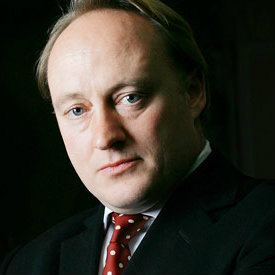Great Figures: Winston Churchill
Consider the challenges of statesmanship through the words and deeds of Winston S. Churchill.
Winter 2016
Washington, DC
Our goal with the “Great Figures of the 20th Century” Weekend Seminars series will be to examine the worldviews and leadership styles of four key individuals – Churchill, Reagan, Thatcher, and Ben-Gurion – in order to surface underlying questions about statesmanship. We will ask questions such as: What is statesmanship? How does one recognize it? And if one can, in fact, speak of statesmanship, what are (or should be) its fundamental constituent components?
These seminars are not intended to be mere biographical surveys of great lives well lived. Our goal, ideally, will be to spend some time covering the basic narratives of what transpired during each figure’s career, but then to engage in extended, thoughtful seminar-style discussion of the issues that these events and narratives raise, exploring their unfolding in our past and reflecting on their implications for our future. We will hope not to simply learn about our figures, but from them.
Photos courtesy Margaret Thatcher Foundation
Daniel Johnson on the Left & the Right

Daniel Johnson is an author, journalist, and founding editor of Standpoint, a monthly British cultural and political magazine. He is the author of White King and Red Queen: How the Cold War was Fought on the Chessboard.

Daniel Johnson is an author, journalist, and founding editor of Standpoint, a monthly British cultural and political magazine. He has been an editorial writer for both The Times (UK) and The Telegraph, as well as literary editor and associate editor for The Times.
He was also a Contributing Editor to The New York Sun and a contributor to The Times Literary Supplement, The Literary Review, Prospect, Commentary, The New Criterion, The American Spectator, and The Weekly Standard. He is the author of White King and Red Queen: How the Cold War was Fought on the Chessboard.
In this session, we shall look at how Mrs. Thatcher defied the British establishment to turn round the UK economy, fought and won the Falklands War against the Argentine dictatorship, pioneered privatization, survived attempted assassination at the hands of Irish Republican terrorists, and fought a year-long miners’ strike led by far-Left extremists bent on destroying her government. We will simulate British and American cabinet discussions on the Falklands War, rehearse key economic debates, recreate the strategy to defeat union power, and re-enact the aftermath of the Brighton bomb.
Readings:
In this session, we return to the darkest days of the Cold War, when Mrs. Thatcher defied the orthodoxies of détente to challenge Soviet aggression and strengthen NATO. We will imagine ourselves in her shoes, facing Gorbachev for the first time and finding common ground without compromising the defense of the West. We shall trace the evolution of her close but complex relationship with Reagan, including the crises over Grenada, the Strategic Defense Initiative (“Star Wars”) and the Reykjavik summit, concluding with her response to the fall of the Berlin Wall and the Gulf War.
Readings:
In this session we shall trace Mrs. Thatcher’s policy towards her European partners and re-enact the debates within Parliament, Cabinet and her own Conservative party. Her triumphs over the budget rebate and the single market were followed by growing frustration over the direction taken by the Europe and a series of conflicts with her colleagues, culminating in her decision to set out an alternative vision and a series of attempts to depose her. We shall recreate the tragic events that led to her fall, despite her unique achievement of three successive victories in general elections, and discuss the relevance of her ideas for the present existential challenges facing Europe.
Readings:
For our final session, we shall consider the sources of Mrs. Thatcher’s leadership, grounded in moral principles and biblical values, and ask how statesmanship in our day can avoid relativism and cynicism. We will discuss the Thatcherite legacy, both in policy and in style, while evoking and analyzing the charisma that enabled the Iron Lady to leave her mark on posterity long after most leaders are forgotten.
Readings:

Andrew Roberts
Andrew Roberts is presently a Visiting Professor at the War Studies Department at King’s College, London and the Lehrman Institute Lecturer at the New-York Historical Society. He is the author or editor of numerous books, including Masters and Commanders, which won the Emery Reves Award of the International Churchill Society and was shortlisted for The Duke of Westminster’s Gold Medal for Military History and The British Army Military Book Award. He is presently writing a biography of Sir Winston Churchill.

Steven F. Hayward
Steven F. Hayward is a senior resident scholar at the Institute of Governmental Studies at UC Berkeley, Senior Fellow of the Claremont Institute, and a visiting lecturer at Boalt Hall Law School. Hayward is the author of a two-volume narrative history of Ronald Reagan and his effect on American political life, The Age of Reagan: The Fall of the Old Liberal Order, 1964-1980, and The Age of Reagan: The Conservative Counter-Revolution, 1980-1989.

Matthew Continetti
Matthew Continetti is the director of domestic policy studies and the inaugural Patrick and Charlene Neal Chair in American Prosperity at the American Enterprise Institute (AEI), where his work is focused on American political thought and history, with a particular focus on the development of the Republican Party and the American conservative movement in the 20th century.

Yoram Hazony
Yoram Hazony is an Israeli philosopher, Bible scholar, and political theorist. He is President of the Herzl Institute in Jerusalem, and Director of the John Templeton Foundation’s project in Jewish Philosophical Theology. His books include The Virtue of Nationalism and The Philosophy of Hebrew Scripture.

Vance Serchuk
Vance Serchuk is Executive Director of the KKR Global Institute and an Adjunct Senior Fellow at the Center for a New American Security. Prior to joining KKR, Mr. Serchuk served for six years as the senior national security advisor to Senator Joseph Lieberman (I-Connecticut).
Mick Ryan
Mick Ryan is a retired major general in the Australian Army. He is now an adjunct fellow at the Center for Strategic and International Studies in Washington DC, and a non-resident fellow of the Lowy Institute in Sydney. In January 2023 Mick was also appointed as an Adjunct Professor at the University of Queensland in Brisbane, Australia.